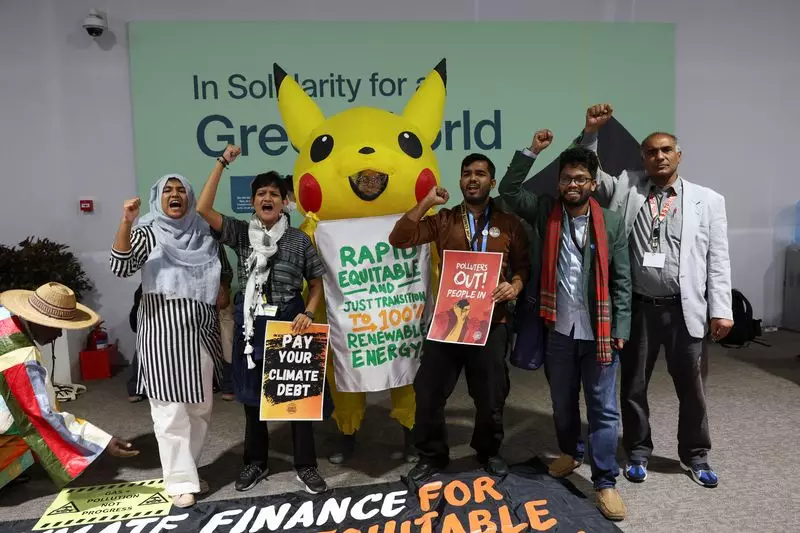Amidst the backdrop of COP29 in Azerbaijan, a coalition of countries scarred by conflict has made a pivotal appeal for a drastic increase in climate financing, aiming for an annual target of over $20 billion. This request comes as a response to the simmering crises these nations face—not just from the escalating effects of climate change, but also from the lingering shadows of warfare and instability. The urgency of their appeal is underscored by a letter that reveals the extent to which these vulnerable populations rely on financial support to bolster their resilience to natural disasters and security threats.
The landscape of climate finance remains fraught with inequalities. While island nations crusade for support to safeguard their territories from rising seas and tropical nations vie for assistance to maintain their carbon-rich ecosystems, conflict-affected states find themselves at a distinct disadvantage. Their struggle is exacerbated by a lack of access to private investment due to perceived risks, leading to an acute reliance on U.N. funding.
Recognizing this pressing need, the COP29 Azerbaijan Presidency plans to inaugurate a ‘Network of Climate-Vulnerable Countries.’ This strategic initiative, particularly involving members of the g7+, aims to create a cohesive front that advocates for fair financing and enhances internal capacity-building among member states. The initiative seeks not only to galvanize financial support but also to streamline the process for investors looking for impactful projects within these nations.
Countries such as Burundi, Chad, Iraq, and Yemen have already joined this coalition, but the door remains open for the remaining members of the g7+ to participate. Abdullahi Khalif, Somalia’s chief climate negotiator, expressed hope that this collaborative effort would lay the groundwork for a robust platform where needs are voiced, and solutions can be forged.
Historically, conflict-affected regions have faced unique challenges, often rendering them invisible in broader discussions about climate financing. Advocates stress that the repercussions of climate-related disasters in war-torn nations can be disproportionately devastating compared to non-conflict areas. For instance, UNICEF data highlights that a child in South Sudan—a country grappling with instability since 2013—was 38 times more likely to be displaced by climate disasters than their counterparts in Europe or North America.
Critics point out that, in 2022, these vulnerable nations received a mere $8.4 billion in climate funding, representing just a fraction of the estimated requirements. These figures indicate a glaring inadequacy in responding to the pressing needs of those who are least equipped to absorb the shocks of climate change.
The letter sent by the g7+ group last month to major financial institutions—including the United Nations and the World Bank Group—called for an explicit commitment in the outcomes of COP29 to significantly boost climate financing. Their objective is clear: to secure a pledge that would see funding double to at least $20 billion per year by 2026. This proactive approach signals the group’s intent to no longer remain passive recipients of aid but to actively chart their own course toward climate resilience.
Insights from experts elicit a sobering truth; climate funds, while abundant, are largely misaligned with the realities faced by the most vulnerable populations. According to Mauricio Vazquez from ODI Global, the current distribution of climate finance is wholly insufficient for genuinely supporting those impacted the most by climate vulnerabilities.
As COP29 unfolds, the conversations surrounding climate finance will set the stage for a pivotal moment in how support is allocated to conflict-affected nations. The voices rising from Azerbaijan encapsulate a desperate yet hopeful call for solidarity. It is a call for the international community to acknowledge the distinct struggles faced by these populations and to act decisively. Without such action, the challenge of climate resilience will become insurmountable for those already bearing the brunt of simultaneous crises. The stakes have never been higher, and the path forward requires not merely empathy but tangible actions that translate into meaningful financial commitments.

